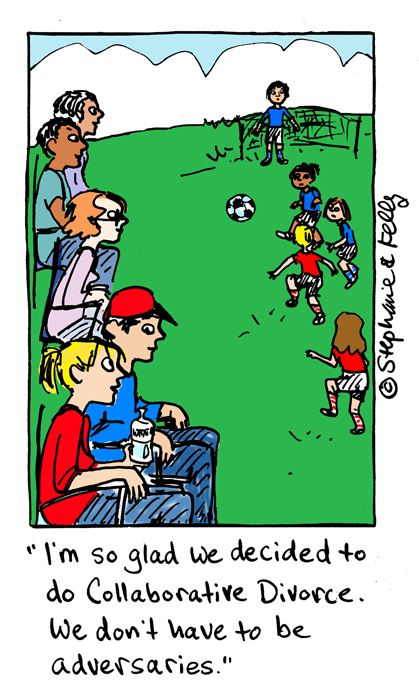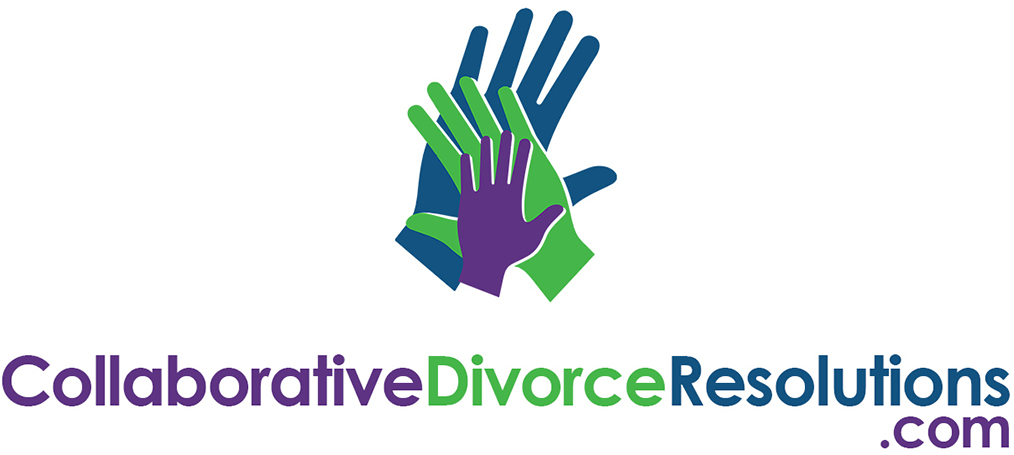
What is Collaborative Divorce?
Collaborative Divorce is an out-of-court dispute resolution process designed to reach a mutually acceptable settlement. In Arizona, this process is governed by Rule 67.1, Arizona Rules of Family Law Procedure.
When ending a marriage, people often experience three “different” divorces: legal, financial and emotional. In a traditional divorce, the attorney often ends up wearing all three “hats.” The benefit of the collaborative process is that you and your spouse can build your team in a way that the right person is wearing the right hat.
In a Collaborative Divorce:
1. The participants sign a Collaborative Commitment Agreement that explains the nature and scope of the matter;
2. The participants agree to disclose all information which is relevant and material to the matter and to be transparent in all dealings;
3. Each party to the matter must be represented by a lawyer. The lawyers’ representation must terminate if either party pursues resolution of their matter though any contested court proceeding. The collaborative attorney cannot represent his/her client in a contested court matter;
4. The participants may mutually engage other professionals (such as a neutral financial specialist, one or more communications coaches and a child specialist) whose engagement also terminates upon the undertaking of any contested court proceeding; and
5. The participants may jointly engage other experts as needed.
What is the difference between Collaborative Divorce and traditional divorce?
Collaborative Divorce:
Both spouses maintain control over outcomes.
The process is private and confidential.
Settlement negotiations are based on reality and transparent information.
Open communication helps preserve family relationships.
Neutral experts can assist in identifying and achieving mutually beneficial outcomes.
Children may have a voice in the outcome.
Many cases cost much less than litigation in court.
Everyone is treated equally and respectfully.
Traditional Divorce:
A judge is in control.
The public can learn many details about your case
Settlement negotiations are based on whatever disclosure the parties provide
Disparaging each other can damage family and important relationships.
Each party hires their own experts, often at great expense.
Children’s best interests are considered, often without their input.
You can never predict the cost.
Someone wins, someone loses.
FAQ
What is the role of an attorney in a Collaborative Divorce?
In a traditional divorce, the attorneys spearhead the adversarial process; however, in a collaborative divorce, the attorneys work cooperatively to assist their clients in identifying and achieving their mutual objectives.
Each participant in a collaborative divorce must have his/her own attorney. Your attorney’s role is to provide you with information regarding the legal issues in your case to help you make informed decisions. Your attorney is your legal advocate and will help you understand the responsibilities and obligations associated with your divorce. The attorneys also draft the legal documents involved in the case.
If either party decides to go to court, the collaborative process terminates and the attorneys must withdraw. Your collaborative attorney cannot represent you in a litigated court proceeding.
Your collaborative attorney is bound by the same ethical rules as an attorney in a traditional case, including confidentiality and attorney-client privilege.
What is the role of the neutral financial expert?
You and your spouse will face a number of financial issues in your divorce. These issues can be emotional and polarizing, especially when it comes to dividing property and addressing family support issues. In a traditional divorce, it seems like everyone is fighting for a bigger piece of the pie. In the collaborative process, a neutral financial expert (someone you both agree to work with) will help you to identify and understand your assets, obligations and financial resources. They gather data and provide a report to assist you and the rest of the collaborative team discuss all possible outcomes for each issue. The financial neutral can make long-term projections to help you understand the implications of your settlement decisions. This expert is a shared resource that can help your family structure financial support and financial plans that ensure that your financial priorities are met.
Just like the collaborative attorneys, the neutral financial specialist must terminate services if either of the participants decides to terminate the collaborative process and go to court.
What is the role of the child specialist?
A child specialist brings the voice of your children into the collaborative process and helps you to understand what your kids need from you, during the divorce and after, to feel safe and secure. No one knows your kids better than the two of you; why let someone else decide their futures?
What is the role of the communication specialist/coach?
Although a communication specialist is a trained mental health professional, their role is not to provide therapy. This specialist, also called a coach, helps the participants to address some of the non-legal issues in their divorce. It should come as no surprise that people going through divorce often have difficulty communicating with each other. Sometimes, unaddressed emotions, such as fear, anger, stress and anxiety may keep you from understanding what you really want or really need. Your communication specialist will help you to identify how these strong emotions play a part in your decision-making and how to manage these emotions throughout the process.
The coach will also help you learn to articulate your goals and objectives so your spouse understands your priorities, and they help you learn to listen when your spouse talks about their own objectives and priorities, even if you don’t agree with each other.
In some collaborative cases, the spouses work with one communication specialist. This is called the “one-coach model.” In the two-coach model, each spouse has his/her own coach. With either model, the coach’s involvement terminates in the event either party decides to withdraw from collaboration and go to court.

Monica Donaldson Stewart, Esq.
“I once heard a colleague say that litigation is like judicial roulette. The idea that a family’s future could be decided based on the discretionary authority of a single individual struck me deeply. It’s less of a coin toss, where a judge might decide in favor of one party or the other, and more like a roll of the dice, where there are acceptable, tolerable and unacceptable outcomes, but you have no idea which it will be. Consider a scenario where every side of the dice has an acceptable outcome, and you and your spouse are the only ones who roll.
I practice collaborative divorce because I feel like the “team” approach gives my client more support than what I, as their attorney, can provide. I’m not a financial specialist. I’m not a communication specialist. I’m not a child specialist. But I know some really great ones, and I’ve seen first-hand how they can help a divorcing family face their future with confidence.”
Send Monica a Message
* We cannot promise a collaborative resolution of your matter. Prior results do not guarantee a similar outcome.






